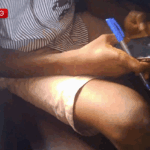
Ghana’s education system is in the throes of a profound crisis. The West African Examinations Council (WAEC) has uncovered an alarming number of irregularities in this year’s West African Senior School Certificate Examination (WASSCE) and Basic Education Certificate Examination (BECE).
This isn’t just a story about students cheating; it’s a chilling exposé of a well-organised syndicate where invigilators, teachers, and even parents are complicit in a systemic moral decay. The integrity of the nation’s academic credentials is on the line, casting a dark shadow over the future of an entire generation.
The issue is not merely an educational one but a symptom of a broader crisis of integrity and accountability that is eroding the very foundations of Ghanaian society.
A Society’s Reflection in the Classroom
The root of this problem is a deep-seated societal issue. As renowned educationist Professor Stephen Adei stated, “What is happening is a reflection of the moral degradation or degeneration in our society.” He draws a parallel between widespread political and economic corruption, such as illegal mining (“galamsey”) and bribery, and the “pressure to perform” that has seeped into the schools. This has created a culture that rewards success at all costs, leading to what the World Bank aptly terms “schooling without learning.” It’s a dangerous trend, as certificates lose their meaning and a nation’s future is compromised.
The pressure cooker environment for students is fueled by a societal obsession with formal credentials over practical skills, a dynamic that can be traced to high youth unemployment and limited opportunities for those without a university degree. For many families, these exams represent a high-stakes, all-or-nothing gamble on their child’s future, a desperate attempt to climb the social and economic ladder. This phenomenon is not unique to Ghana but is a common challenge for developing nations where education is seen as the primary vehicle for social mobility, creating an intense, often unhealthy, focus on exam results.
The Human Toll: Desperation and Fear
The pressure on students and their families is immense. For many Ghanaian students, a good WASSCE or BECE result is the only ticket to a better life, a ticket to a good university or a coveted career. This has created a fertile ground for “an organized crime syndicate,” as described by Dr. Peter Anti of the Institute of Education Studies.
For many parents, paying a bribe for leaked questions is a “shortcut” to avoid the stress and uncertainty of the standard process. A parent, speaking anonymously, confessed, “My child was struggling, and I saw no other way. The pressure is too much. You want the best for your child, and in Ghana, that means passing these exams.” This desperation also puts teachers in a difficult position.
Many who refuse to participate in the fraud face intimidation and threats, receiving “warning notes in their pigeonholes, cars, and even at their homes.” It is a tragic cycle where “even angels will be corrupted” by a broken system that offers no protection for integrity.
A student who witnessed cheating at their center confided, “We all know what’s happening. The teachers who refuse to help are seen as enemies. It makes you lose trust in everyone.” This environment breeds fear and complicity, making it incredibly difficult for honest individuals to speak out. The breakdown of trust between students, teachers, and parents is a silent but devastating consequence of the scandal, undermining the very foundation of the student-teacher relationship.
Institutional Responses and Public Skepticism
WAEC has taken a firm stance, with its Head of Public Affairs, John Kapi, confirming the arrest of over 16 people and the seizure of dozens of mobile phones. The council has warned that scripts from implicated schools “will certainly be scrutinised.” The Ghana Education Service (GES) and the Ministry of Education have also threatened “swift and without leniency” action.
However, many are skeptical of these promises. Professor Adei has been a vocal critic of the GES, calling it “an inefficient bureaucracy” that is “not able to turn fast.” He argues that its over-centralized structure has bred a lack of accountability, famously citing a story of a priest who was told by a misbehaving teacher, “You can report me to GES, nothing will happen.”
The National Union of Ghana Students (NUGS) has demanded a seat at the table, but WAEC has dismissed their requests for representation on decision-making committees. WAEC’s Head of National Office, Dr. Rosemond Wilson, stated that student leaders are “not staff of the GES, so they cannot invigilate or supervise our exams,” insisting that existing structures are sufficient. This stance has led to a perception among students that their voices are not being heard, fueling public distrust.
The exclusion of students from the dialogue is a missed opportunity. Including student representatives, who are on the front lines of this crisis, could provide invaluable insights and build a sense of shared ownership in the reform process.
The Economic Toll and a National Emergency
The consequences of this pervasive cheating extend far beyond academic integrity. WAEC’s recent data reveals the severity: the results of 4,591 candidates from the 2024 WASSCE were cancelled entirely, with an additional 4,108 candidates having their subject results cancelled for bringing unauthorized materials into exam halls. This follows a trend where over 146,000 WASSCE candidates have been involved in malpractice over the past four years.
The crisis can no longer be seen as an isolated issue; it is a direct threat to Ghana’s economic future. Unqualified graduates, propelled by fraudulent certificates, are entering critical sectors like healthcare and engineering. The result is a workforce lacking the fundamental skills and knowledge needed to drive national development. This academic rot has also damaged the international reputation of Ghanaian certificates, with some foreign universities and employers now questioning the validity of credentials from Ghana. A nation’s credibility is built on trust, and a compromised education system erodes that foundation.
A Path to Systemic Reform
The solution requires more than just punitive measures; it demands systemic reform. Experts and educationists have suggested a move towards a digital transformation of the examination process. This includes using computer-based testing, CCTV monitoring, and serialized question sets to reduce human interference and limit leaks.
The growing use of social media and encrypted messaging apps by these syndicates highlights the need for a technological response that can outpace these new methods of fraud.
However, the experience of Ghana’s neighbor, Nigeria, serves as a cautionary tale. Nigeria’s WAEC recently faced a crisis with its own technological rollout, where “technical bugs” and errors led to an unprecedented recall of results, damaging public trust. This highlights the need for careful and flawless implementation. Additionally, a fundamental change in accountability is necessary.
The government must back WAEC’s proposed reforms, including the criminalization of exam malpractice and the prosecution of all perpetrators, regardless of their position.
The GES has vowed to dismiss any staff caught aiding in malpractice, and WAEC has publicly backed this move. Schools and teachers who uphold integrity should be publicly recognised and rewarded.
The public, especially parents, must be educated on the long-term consequences of malpractice. The education system itself must evolve to de-emphasise high-stakes, single-point examinations and incorporate more continuous, holistic assessments that measure a wider range of skills, such as critical thinking, problem-solving, and collaboration.
This would shift the focus from rote memorisation to genuine understanding, which is more difficult to cheat and more valuable for the workforce.
Ghana is already undertaking broader education reforms, such as the introduction of a Common Core Program and a renewed focus on STEM and vocational training, which could, in the long run, help to reduce the over-reliance on a single, high-stakes exam. Ultimately, Ghana must choose whether to produce “graduates of integrity and competence, or products of shortcuts and malpractice.”
This isn’t just a challenge for a few institutions; it is a moral test for the entire nation. The current crisis is a wake-up call to redefine the purpose of education—from a mere credential factory to a true engine of national development, built on a foundation of integrity and merit.
- President Commissions 36.5 Million Dollars Hospital In The Tain District
- You Will Not Go Free For Killing An Hard Working MP – Akufo-Addo To MP’s Killer
- I Will Lead You To Victory – Ato Forson Assures NDC Supporters
Visit Our Social Media for More




